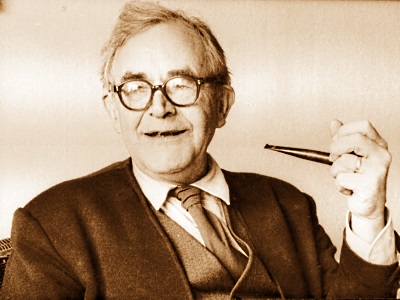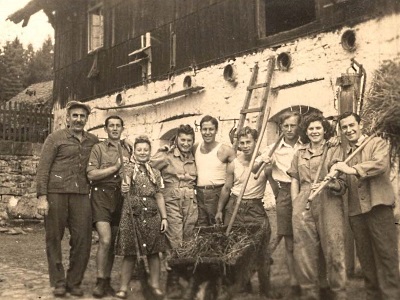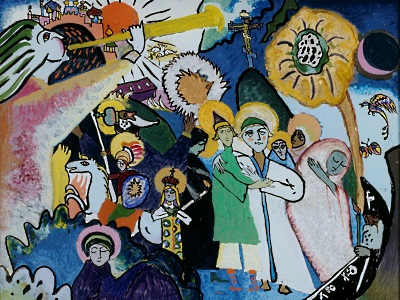Eberhard Arnold studied Martin Buber’s writings during World War I, and in 1918 he described him in Die Furche magazine as the “prophet of the new Jewish movement.” The two had already met at that time, a contact revived once more in 1921 when Eberhard tried to obtain Buber’s support for a collection of extracts from Gustav Landauer’s works. The book never materialized, but Buber’s curiosity about the Neuwerk movement was aroused. On July 28, 1921, Buber and Eberhard had a long talk at Sannerz. From a theological point of view the two held exactly the same reservations about Karl Barth, and they shared a nearly identical understanding of the kingdom of God and of the mystery of Gemeinde (community) – the sole exception in their mutual understanding was Jesus of Nazareth: for Buber, an inspired prophet with power from above; for Eberhard, the Lord of the Gemeinde and of the world. After 1924 Buber met Eberhard several times at Neuwerk conferences, and the two helped to organize the August 1927 World Youth conference meetings on religion and world views. Their relationship was always one of great mutual esteem – a respect almost too great to permit a close friendship.
Adapted from Markus Baum, Against the Wind: Eberhard Arnold and the Bruderhof, electronic edition (Walden, NY: Plough, 2015), 146.
Further reading: Mike Tyldesley, “Martin Buber and the Bruderhof Communities,” Journal of Jewish Studies 45:2 (1994): 258–272.


